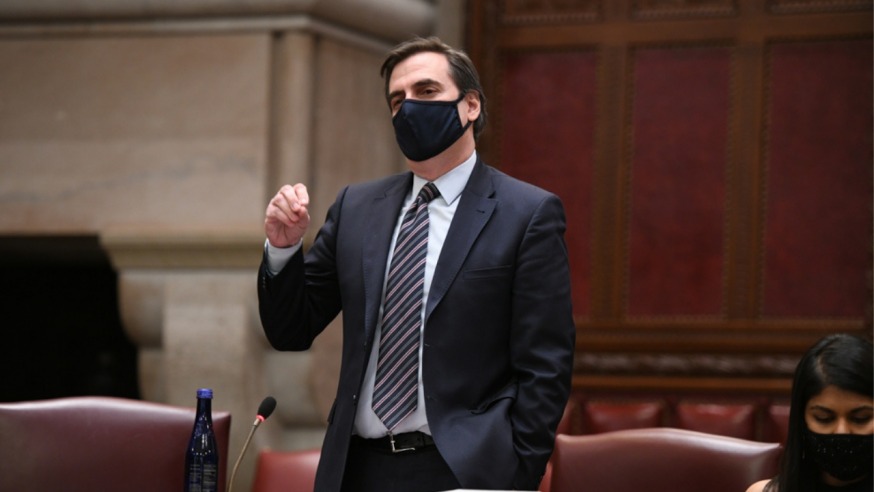
State Sen. Michael Gianaris, pictured, introduced the New York Health and Essential Rights Act (HERO) in January (Photo via Flickr)
Sept. 7, 2021 By Michael Dorgan
A new law aimed at protecting employees from contracting COVID-19 by improving workplace safety standards went into effect Monday – after months of delays.
The law, called the New York Health and Essential Rights Act (HERO), requires businesses to implement a range of safety standards in order to prevent the spread of coronavirus in the workplace.
The law, however, was slow to go into effect—since the New York State Health Department had to certify COVID-19 as a threat to public health in order for the protections to kick in. The department issued the required certification Monday.
Today #COVID19 was officially designated as a serious public health risk under the new NY HERO Act.
This designation means the Act can be fully implemented.
Workplaces will be required to develop safety plans for COVID, helping ensure the health and safety of working NYers.
— Kathy Hochul (@GovKathyHochul) September 6, 2021
State Sen. Mike Gianaris, who sponsored the bill in the senate, welcomed the news and said that the law will save lives and protect workers.
“It took too long to effectuate and too many workers have already sacrificed their health for our community’s benefit, but we can finally recognize their efforts by giving workers the tools to protect themselves while on the job,” Gianaris said in a statement yesterday.
The legislation passed both the Assembly and Senate in late April, and was signed into law by former Governor Andrew Cuomo on May 5. However, the Cuomo administration’s Health Dept. did not certify that COVID-19 was a public health threat.
The department’s announcement Monday comes after Gianaris and Assembly Member Karines Reyes, who represents District 87 in the Bronx, penned a joint letter to Hochul on Aug. 20 urging her new administration to issue the declaration.
With the legislation in effect, employers are now required to adhere to a series of workplace guidelines that address issues such as personal protective equipment (PPE), social distancing and hand hygiene. New employee health screenings are also to be required.
The new law requires the Health Department and the Department of Labor to come up with the safety standards and oversee their enforcement. Employers can adopt a model safety plan crafted by the state or develop their own safety plan in compliance with HERO Act standards.
Hochul welcomed the Health Department’s designation and said the law will help in the state’s effort to combat COVID-19.
“While we continue to increase our vaccination numbers, the fight against the Delta variant is not over, and we have to do everything we can to protect our workers,” Hochul said.
The HERO Act was supported by more than 100 labor, community, and safety organizations.
